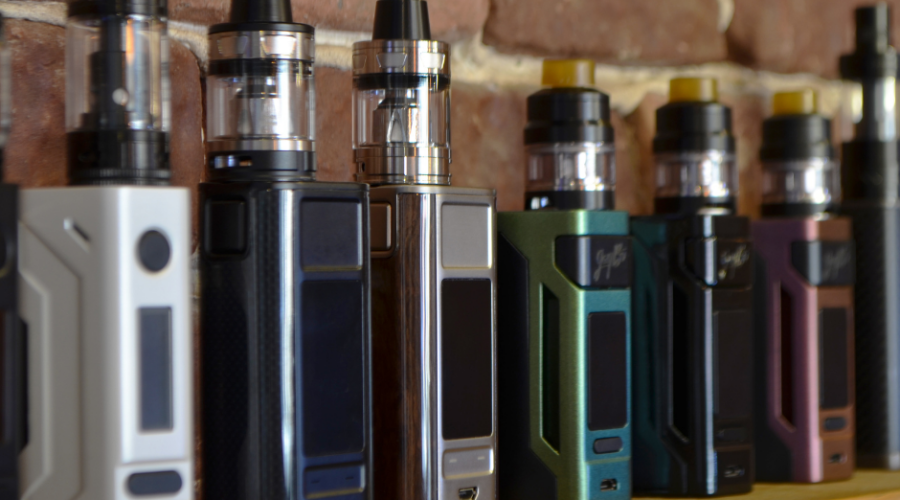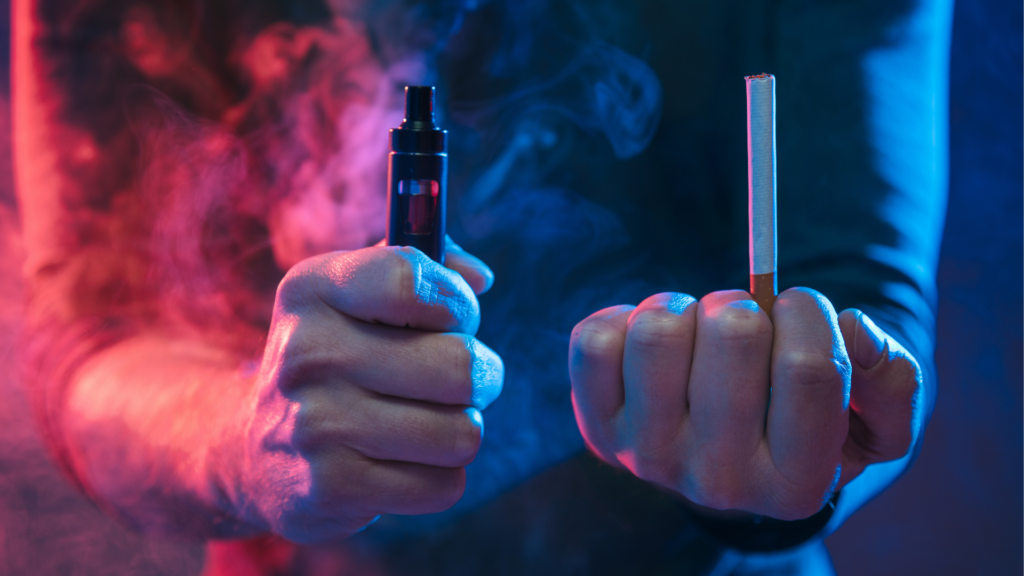Pentingnya Peran Pelaku Industri Vape untuk Mencegah Penyalahgunaan Produk
Rokok elektrik, yang dikenal juga dengan istilah vape, saat ini merupakan salah satu produk yang semakin banyak dikonsumsi oleh berbagai kalangan. Saat ini, khususnya kita yang tinggal di daerah perkotaan, bisa dengan mudah menemukan berbagai pengguna vape, dan juga pertokoan yang menjual berbagai produk rokok elektrik dengan segala variasinya.
Ada berbagai alasan mengapa vape atau rokok elektrik mengalami peningkatan konsumen. Beberapa diantaranya adalah variasi rasa rokok elektrik yang sangat beragam dibandingkan dengan rokok konvensional, harganya yang lebih murah, khususnya bagi perokok aktif yang biasanya mengkonsumsi rokok dalam jumlah besar, hingga kandungan vape yang jauh lebih tidak berbahaya bila dibandingkan dengan rokok konvensional yang dibakar.
Tetapi di sisi lain, dengan semakin banyaknya pengguna rokok elektrik, tentu muncul berbagai penyalahgunaan terhadap produk vape yang ridak semestinya. Dan tidak jarang, berbagai penyalahgunaan tersebut juga menimbulkan korban. Misalnya, kejadian yang terjadi di Amerika Serikat beberapa waktu lalu, di mana ada beberapa pengguna vape yang meninggal setelah menggunakan produk vape palsu. Pemilik usaha vape palsu tersebut akhirnya segera ditangkap oleh pihak yang berwajib (npr.org, 9/10/2019).
Adanya produk vape ilegal, sama seperti produk-produk ilegal lainnya, tentu merupakan sesuatu yang sangat berbahaya bagi konsumen dan harus segera diatasi. Jangan sampai, banyak orang menjadi mengalami sakit hingga meninggal karena menggunakan produk-produk yang berbahaya.
Berbagai bentuk penyalahgunaan ini tentu bukan hanya hal yang terjadi di Amerika Serikat saja. Di Indonesia misalnya, ada berbagai praktik penyalahgunaan rokok elektrik atau vape yang bisa kita temui di berbagai tempat, dan harus dapat segera kita atasi.
Salah satunya misalnya, konsumen rokok elektrik di bawa umur. Padahal, vape atau rokok elektrik, sebagaimana produk-produk lain seperti rokok dan alkohol, merupakan produk-produk yang diperuntukkan untuk orang dewasa. Anak-anak merupakan kelompok usia yang harus dilarang mengkonsumsi berbagai produk-produk tersebut, dan siapa pun yang terlibat dalam penjualan produk rokok elektrik kepada anak-anak harus diberi sanksi.
Contoh lainnya misalnya adalah konsumsi vape yang dilakukan oleh ibu hamil. Hal ini tentu juga bukan sesuatu yang tepat untuk dilakukan. Tidak seharusnya, vape atau rokok elektrik dikonsumsi oleh perempuan hamil karena berpotensi menimbulkan berbagai dampak yang tidak diinginkan bagi bayi yang dikandungnya.
Agar permasalahan penyalahgunaan tersebut bisa diatasi dengan baik, tentu aksi keterlibatan dari aparat penegak hukum untuk menindak pihak-pihak yang melanggar saja tidak cukup. Dibutuhkan pula peran aktif dan para pelaku usaha untuk terlibat secara langsung untuk mengatasi berbagai penyalahgunaan produk-produk rokok elektrik tersebut, yang tidak jarang dilakukan.
Berita baiknya, para pelaku usaha rokok elektrik di Indonesia bersedia mengambil langkah tersebut. Beberapa waktu lalu, asosiasi pelaku usaha vape, Asosiasi Personal Vaporizer Indonesia (APVI), menyatakan bahwa mereka berkomitmen untuk membantu pemerintah dalam mencegah penyalahgunaan berbagai produk vape dan roko elektrik (finance.detik.com, 4/7/2023).
Ada beberapa langkah yang akan dilakukan oleh APVI sebagai wujud komitmen asosiasi tersebut dalam membantu pemerintah melakukan pencegahan penyalahgunaan rokok elektrik. Diantaranya adalah, aturan asosiasi bagi apra anggota APVI untuk tidak menjual produk-produk tersebut kepada anak-anak, perempuan hamil, dan juga orang-orang yang tidak merokok. Selain itu, APVI juga berkomitmen untuk melakukan edukasi publik untuk memperkecil potensi penyalahgunaan produk-produk vape.
Tetapi pada saat yang sama, APVI juga mengatakan bahwa sangat penting bagi pemerintah untuk dapat bersikap objektif terhadap kajian-kajian yang ada di luar negeri mengenai produk nikotin alternatif seperti vape. Sebagaimana yang sudah disampaikan oleh lembaga-lembaga kesehatan dunia seperti Public Health England dari Inggris, vape atau rokok elektrik merupakan produk yang 95% jauh lebih tidak berbahaya bila dibandingkan dengan rokok konvensional yang dibakar (gov.uk, 19/8/2015)
Sikap objektif dari pemerintah terhadap berbagai kajian tersebut tentu merupakan sesuatu yang sangat penting untuk mencegah misinformasi mengenai vape dan rokok elektrik. Melalui hasil kajian tersebut, tentu diharapkan akan semakin banyak perokok yang berhenti merokok dan beralih ke produk alternatif yang jauh lebih tidak berbahaya untuk membantu mereka menghentikan kebiasaan merokoknya.
Tidak hanya dari sisi pelaku usaha, organisasi konsumen vape juga menyatakan komitmen mereka untuk mencegah penyalahgunaan vape dan produk nikotin alternatif. Aliansi Vapers Indonesia (AVI), yang merupakan organisasi konsumen vape, menyatkan bahwa mereka mendukung upaya APVI untuk mencegah peyalahgunaan produk-produk vape melalui berbagai kegiatan kampanye dan sosialisasi. Selain itu, AVI juga mengkampanyekan kepada para anggotanya untuk ikut turut menyebarkan informasi tentang hal tersebut (finance.detik.com, 4/7/2023).
Sebagai penutup, komitmen yang ditunjukkan oleh APVI dan juga AVI ini untuk mencegah berbagai penyalahgunaan rokok elektrik dan produk nikotin alternatif tentu sesuatu yang patut untuk didukung dan diapresiasi. Diharapkan, melalui komitmen ini, sosialisasi dan kampanye mengenai pencegahan penyalahgunaan tersebut dapat semakin masif, dan akan semakin sedikit orang-orang yang menggunakan rokok elektrik secara yang bukan semestinya.
Originally published here










